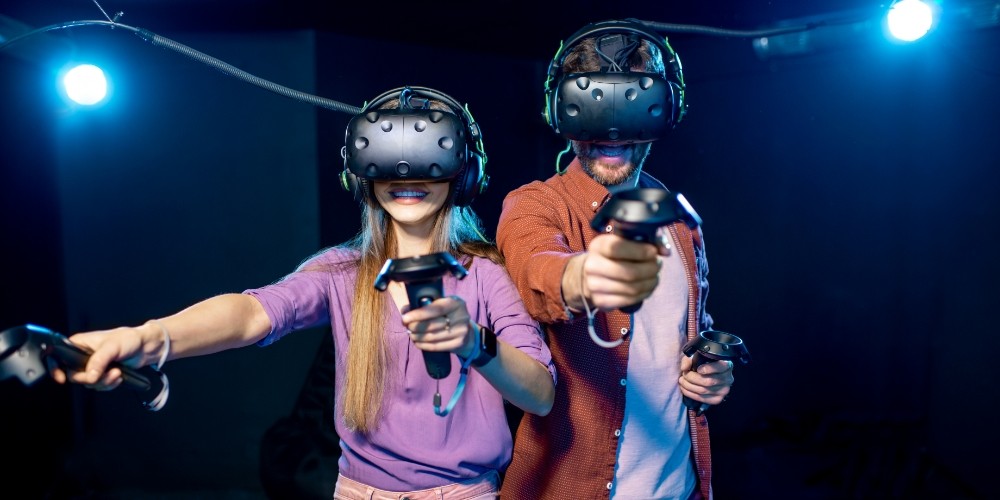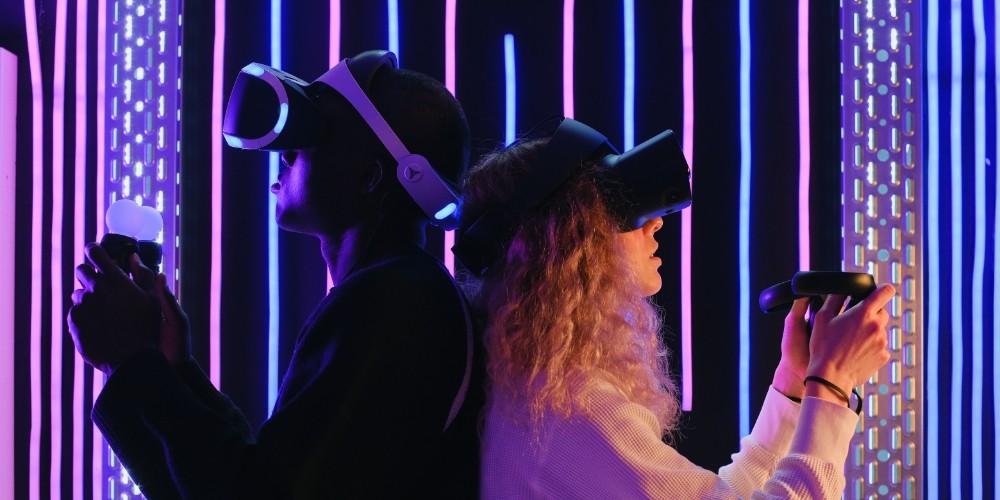
Virtual reality (VR) gaming, a technology that first seemed like distant science fiction, has rapidly evolved into a keenly watched videogame industry segment. With the ability to immerse players in three-dimensional digital worlds, VR gaming promises an interactive experience unparalleled by traditional gaming. As VR technology advances, questions arise about its sustainability and potential to alter the gaming landscape permanently. Is virtual reality gaming the dawn of a new era in interactive entertainment, or is it just a fleeting high-tech trend?
The Rise of Virtual Reality Gaming

To understand the trajectory of VR gaming, it's pivotal to explore its origins and how it has progressed over the years. Initially, the concept of virtual reality was plagued by technological limitations, leading to clunky and unconvincing experiences. However, the past decade has seen a significant leap forward. Major tech companies have thrown their hats into the ring, developing VR headsets with high-resolution displays, precise head-tracking, and increasingly intuitive motion controllers. The result is an immersive gaming experience many had dreamed about but never thought possible.
The Immersive Experience of VR Gaming
The essence of VR gaming's appeal lies in its unparalleled level of immersion. Traditional gaming confines players to observing through a screen, whereas VR gaming encompasses them within the game's universe. This shift from being an observer to a participant has profound implications for the gaming experience. Players can look around virtual worlds as if they were truly there, interact with the environment intuitively, and experience a sense of presence that traditional gaming cannot match. This profound level of immersion can significantly enhance emotional engagement, making experiences more intense and memorable.
Current Trends and Innovations in VR Gaming

Today, virtual reality gaming continues to evolve rapidly, with ongoing innovations that promise to expand its capabilities further. Game developers are experimenting with increasing immersion, such as integrating haptic feedback suits that allow players to feel physical sensations matching their virtual experiences. Advances in VR hardware, like wireless headsets and eye-tracking technology, are making VR gaming more accessible and comfortable. Moreover, with the rise of social VR platforms, players can now interact with others in virtual spaces, adding a new dimension to online gaming.
Challenges Facing Virtual Reality Gaming
Despite its exciting potential, VR gaming faces several significant challenges that could hinder its growth. The most notable is the high cost of entry; to experience high-quality VR gaming, players must invest in powerful PCs or consoles in addition to the headset itself. There's also the issue of motion sickness, which affects a considerable portion of users. Furthermore, the content library for VR gaming, though growing, still lacks the breadth and depth of traditional gaming, potentially limiting its appeal to a broader audience.
The Future of Virtual Reality Gaming
Predicting the future of VR gaming involves examining ongoing trends and how they address current challenges. The increasing investment in VR technology by major players in the tech and gaming industries signals a strong belief in its potential. As hardware becomes more affordable and user-friendly, and as developers continue to expand the range and depth of VR content, virtual reality gaming is poised to become more mainstream.

Additionally, integrating VR with other emerging technologies, such as artificial intelligence and blockchain, opens up new possibilities for creating even more immersive and interactive gaming experiences. Virtual reality could revolutionize not just gaming but also education, training, and social interaction, offering experiences that are as educational as they are entertaining.
Is Virtual Reality Gaming a Fad or the Future?
Given the substantial investments in VR technology and its ongoing evolution, it's clear that virtual reality gaming is more than just a passing fancy. However, whether it represents the future of gaming depends on how effectively it can overcome current limitations and resonate with a broader audience. The increasing focus on making VR more accessible and engaging suggests that the industry is on the right path.

As with many technological advancements, the true potential of VR gaming will likely unfold over time. It might not replace traditional gaming altogether but instead exists alongside it, offering an alternative for those seeking more immersive and interactive experiences.
Conclusion
Virtual reality gaming stands at a fascinating juncture. Its capacity to offer deeply immersive experiences offers a glimpse into an exciting future of entertainment where the boundaries between the digital and the physical blur. Despite the challenges and skepticism, VR technology's continued investment and innovation showcase its potential to transform gaming and many aspects of our digital lives.
Whether virtual reality gaming will ascend to the heights of mainstream gaming or remain a niche interest is yet undecided. However, its journey from a sci-fi fantasy to an actual component of the gaming industry is a testament to human innovation and imagination. As technology matures and becomes more integrated into everyday life, the question may not be if VR gaming is the future but how soon and to what extent it will reshape the interactive entertainment landscape.